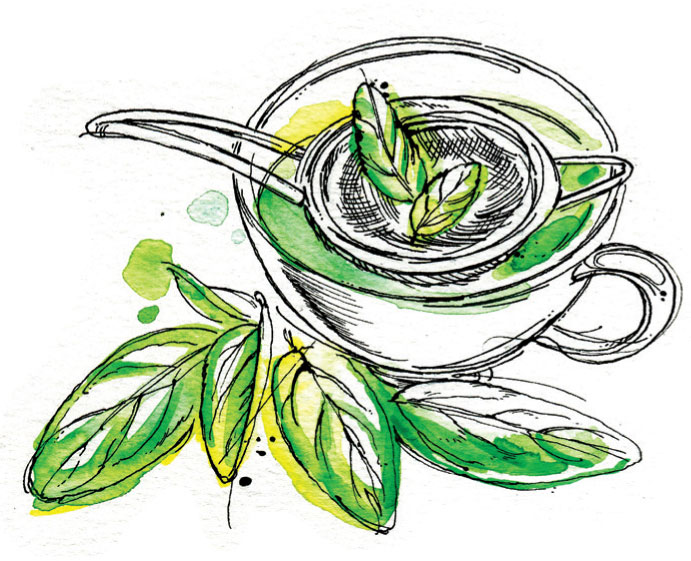RESOURCES
General Dosing Guidelines for Herbal Medicine

These are by no means hard-and-fast rules, but they are offered here as a simple guideline for dosing applications.
Please keep in mind that herbs are best used in frequent smaller doses throughout the day rather than occasional large doses.
Medicinal Teas
3 cups per day, or 1 quart (1 L) spread out throughout the day
Capsules
ACUTE: 2 to 3 capsules 3 to 4 times per day
CHRONIC/TONIC: 2 capsules 1 to 2 times per day
Tinctures
ACUTE: 2 dropperfuls every 2 to 3 hours for 1 to 2 days, then 2 dropperfuls 2 to 3 times per day for 5 days
CHRONIC/TONIC: 1 dropperful 3 times per day
Poultices/Fomentation
TYPICALLY USED FOR ACUTE CONDITIONS: Apply 2 times per day, 30 minutes with gentle heat
Children
TEAS AND SYRUPS: Teaspoon doses 3 to 6 times per day, depending on case
GLYCERIN TINCTURES: 1 dropperful 3 to 4 times per day
Where to Purchase Quality Herbs
Purchasing quality herbs will make or break your herbal experience. When I first moved to Portland, Oregon, there were no herb shops close by in the Portland metro area. There was one store that had herbs, but they were not organic; when I stood before the wall of herbs, they were all almost the same color. That isn’t normal. Herbs should vibrate their energy through their colors, smells, and flavors. When you go to any herb shop, open the jars; look at the herbs and smell them. You’ll quickly know the difference between quality herbs and mass-produced product. An herb is only as good as its source, so choose high-quality herbs when you intend to use them as medicine. If the herb is not grown or processed correctly, it may look normal, but it will not contain the constituents necessary for healing. The processing piece is extremely important, particularly when using dried herbs. Each herb needs to be processed and handled in particular ways or the medicinal constituents could be destroyed. I’ve seen this time and time again, especially from big companies with no other agenda than to make a profit from the herbal growth trend. They produce countless products that, when tested, have virtually nothing in them. If you really want to do your homework, ask companies for certificates of analysis for their herbs. These certificates demonstrate the medicinal quality of their herbs and their quality control. I recommend the following companies.
FOR SMALLER QUANTITY HERBAL PURCHASES
Fettle Botanic Supply & Counsel www.fettlebotanic.com
FOR LARGER QUANTITIES (1-POUND [455 g] INCREMENTS)
Mountain Rose Herbs www.mountainroseherbs.com
Pacific Botanicals www.pacificbotanicals.com
Oregon’s Wild Harvest www.oregonswildharvest.com
Herbalist Conferences, Societies, and Schools
Belonging to herbal organizations and attending herbal conferences can be very rewarding. Surrounding yourself with others who are passionate about herbs can catapult your learning experience. Search out herbalists in your community for grassroots learning as well as an opportunity to learn the flora and fauna of your specific region. Remember, the day-to-day ailments of each region most often have the appropriate healing plants growing nearby.
Herbal Conferences
If you love traveling and submerging into learning for two to four days at a time, seek out some of the annual herbal conferences around the country. Here are a few of my favorites.
Southeast Wise Women’s Herbal Conference www.sewisewomen.com
Medicines from the Earth Herb Symposium www.botanicalmedicine.org
New England Women’s Herbal Conference www.facebook.com/womensherbalconference
Pacific Women’s Herbal Conference www.pacificwomensherbalconference.com
Northern California Women’s Herbal Symposium www.womensherbalsymposium.org
Southwest Conference on Botanical Medicine www.botanicalmedicine.org
Breitenbush Herbal Conference www.breitenbushherbalconference.com
The Dandelion Seed Conference http://dandelionseedconference.weebly.com
Herbal Societies
American Herbalists Guild www.americanherbalistsguild.com
American Botanical Counsel http://abc.herbalgram.org
United Plant Savers www.unitedplantsavers.org
American Herbal Pharmacopoeia www.herbal-ahp.org
Herb Research Foundation www.herbs.org
Herbal Studies and Schools
For a complete and comprehensive list, visit www.herbnet.com/university_p1.htm
Blue Otter School of Herbal Medicine www.blueotterschool.com
A comprehensive school in northern California led by Karyn Sanders and Sarah Holmes.
California School of Herbal Studies http://cshs.com
Founded by Rosemary Gladstar; one of the United States’s first schools of herbal studies.
Southwest School of Botanical Medicine http://swsbm.com
Founded by herbalist Michael Moore; continues through a distance-learning program.
EarthSong Herbals http://earthsongherbals.com
If you want to learn how to work with clients as an herbalist or herbal consultant, this is a great learning experience. It’s one of the few that offers clinic experience.
Midwest School of Herbal Studies www.midwestherbalstudies.com
This school offers two programs: A one-year Western-Herbalism Certificate Program and a two-year Master-Herbalist Diploma Program.
Center for Herbal Studies www.herbalstudies.net
David Winston’s Center for Herbal Studies is highly recommended.
New Mexico School of Natural Therapeutics http://nmsnt.org
You will get much more than just herbs from this experience. It offers a multidimensional approach to healing through the education of several modalities.
ArborVitae School of Traditional Herbalism https://arborvitaeny.com
In New York City, this is a three-year comprehensive program to study herbal medicine.
Dr. Christopher’s School of Natural Healing www.schoolofnaturalhealing.com
Dr. Christopher’s work has aided in the education of herbalism for many decades. The school offers a distance-learning program.
Rosemary Gladstar’s The Science & Art of Herbal Medicine
https://scienceandartofherbalism.com
A wonderful foundational certification program in herbal medicine. It is self-learning through ten courses that include homework and projects to be completed. Or you can visit Sage Mountain for a hands-on course.